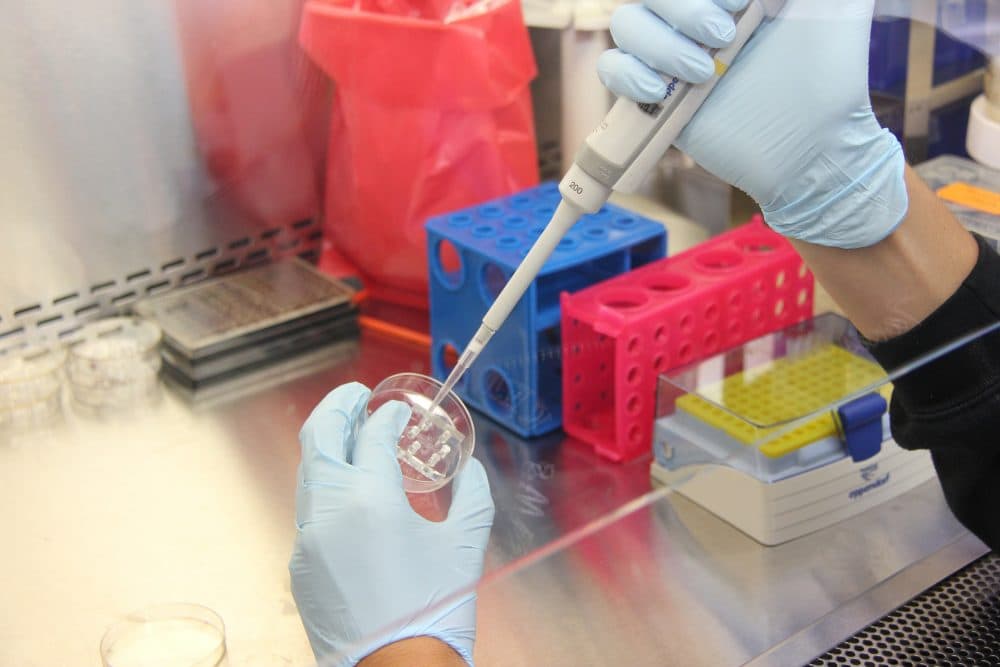Advertisement
The Future Of Scientific Discovery
ResumeWith guest host John Harwood.
Science is in trouble. More and more research findings turning out to be mistakes or useless. Can science be saved from itself?

“Science, our one source of objective knowledge, is in deep trouble,” says a professor at Arizona State’s School for the Future of Innovation and Society. In a generation that’s seen revolutions in digital technology and bio-medicine, can that be true? If so why? Is the World War II research boom running out of steam? We’ll talk to that professor, Daniel Sarewitz. This hour On Point, does science need saving? — John Harwood
Guests
Daniel Sarewitz, professor of science and society at the Arizona State University School for the Future of Innovation and Society. Co-director of ASU's Consortium for Science, Policy and Outcomes. Co-editor of Issues in Science and Technology and columnist for Nature.
Dr. Steve Perrin, CEO and chief scientific officer at the ALS Development Institute.
Sally Kornbluth, provost of Duke University. Cell biologist and professor at the Duke University School of Medicine.
From The Reading List
The New Atlantis: Saving Science -- "Science, pride of modernity, our one source of objective knowledge, is in deep trouble. Stoked by fifty years of growing public investments, scientists are more productive than ever, pouring out millions of articles in thousands of journals covering an ever-expanding array of fields and phenomena. But much of this supposed knowledge is turning out to be contestable, unreliable, unusable, or flat-out wrong."
WIRED: Scientists Are Wrong All the Time, and That’s Fantastic — "When the politics of scientific publishing prevent negative results from getting out there, science can’t advance, and potentially dangerous errors—whether due to fraud or an honest mistake—go unchecked. Which is why lots of scientific publications, including PLOS, have recently begun to emphasize reproducibility and negative results."
Reason: Most Scientific Findings Are Wrong or Useless — "Ultimately, science can be rescued if researchers can be directed more toward solving real world problems rather than pursuing the beautiful lie. Sarewitz argues that in the future, the most valuable scientific institutions will be those that are held accountable and give scientists incentives to solve urgent concrete problems. The goal of such science will be to produce new useful technologies, not new useless studies. In the meantime, Sarewitz has made a strong case that contemporary 'science isn't self-correcting, it's self-destructing.'"
This program aired on August 31, 2016.